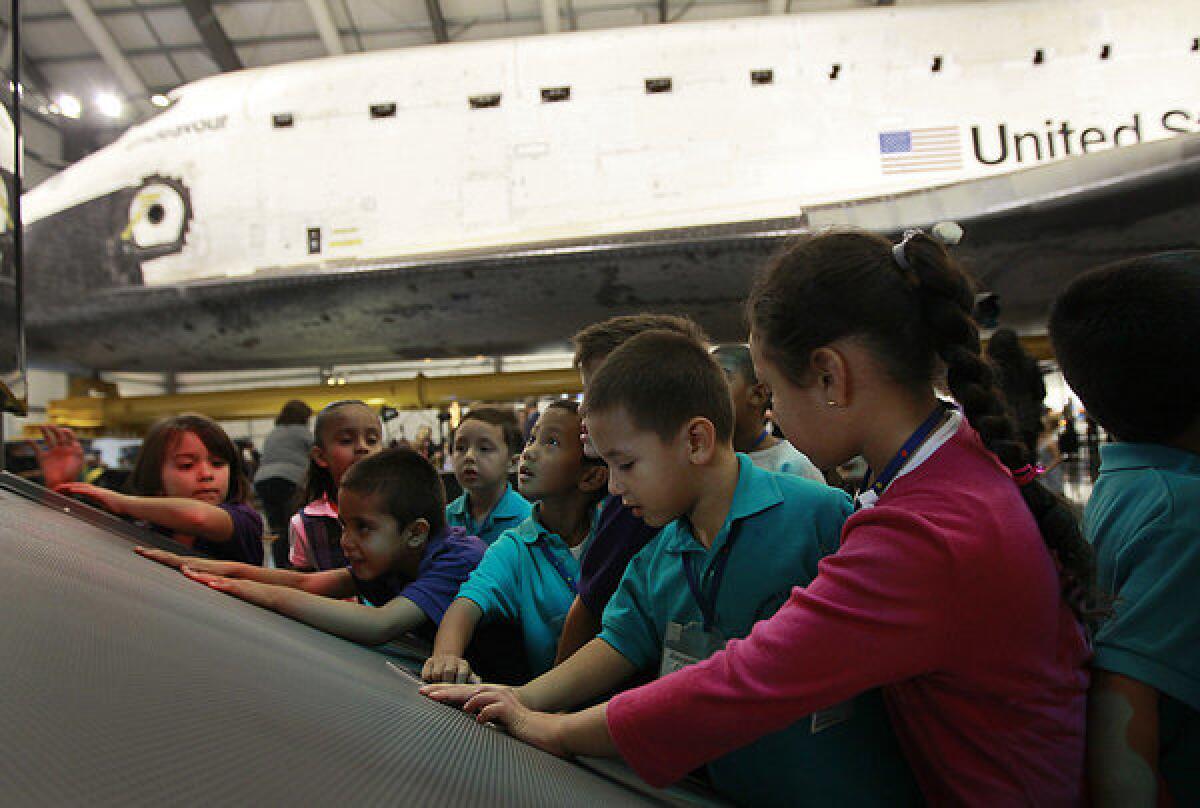State board OKs USC control of Coliseum and its revenues

A state board voted Tuesday to approve a sharply debated deal that grants USC control of the Los Angeles Memorial Coliseum and nearly all of the revenues from the taxpayer-owned stadium for the next century.
The governing board of the California Science Center, the Coliseum’s landlord, voted 7-0 to adopt the basic terms for the lease agreement that extends to the private university most of the benefits of owning the historic venue without requiring the school to buy it.
The new lease will become effective after the state Department of General Services and the California Natural Resources Agency approves a final document and the Science Center board ratifies it. The package could require Sacramento to reimburse two public museums next to the Coliseum for money they might lose to USC’s use of their parking lots.
Under the lease, which grew out of a corruption scandal at the Coliseum Commission, USC also has the option to tear down the neighboring Sports Arena and replace it with a professional soccer stadium or amphitheater. The school has had discussions with Major League Soccer about building a stadium on the site, possibly for Chivas USA.
Critics have labeled the overall agreement a giveaway to USC that fails to guarantee the public enough money from the Coliseum complex. A state report estimated the value of the properties at $240 million to $400 million.
Key opposition had come from trustees of the Science Center’s fundraising foundation, which is separate from the governing board. They said the museum, home of the space shuttle Endeavour, would be hurt by the lease provision that allows USC to take over Science Center parking for the school’s football games and three other major events at the Coliseum or Sports Arena, such as concerts, each year.
Parking receipts help fund free programs at the Science Center, the California African American Museum and the surrounding Exposition Park. A Department of Finance analysis released Tuesday said the lease could cost the museums $78,000 to $203,000 a year unless USC-managed events generate enough parking revenue to erase the shortfall.
Before Tuesday’s vote, the Brown administration sent a letter to the museums promising to restore lost parking funds for the next two years. Administration officials did not say where it would get that money.
An earlier version of the 98-year lease gave USC the right to claim museum parking for 25 big events annually. That number was reduced to nine and possibly 10, depending on the football calendar, after fierce opposition by museum backers and others.
Foundation trustee Marvin Holen, who attacked the previous proposal as a “robbery,” said Tuesday’s agreement has “achieved a reasonable balance” because, in part, of the state’s vow to cover parking revenue losses.
“We will be OK,” Holen said.
USC spokesman Thomas Sayles said the lease is “a win-win. … I think that we went from concern to collaboration to consensus.”
The deal requires USC to spend at least $70 million on upgrades to the 90-year stadium during the first decade and, if it wants to keep the lease for the full term, $30 million more by 2054.
The school also will pick up the Coliseum Commission’s $1 million yearly rent payment to the state, an amount that will increase to $1.3 million in 2016 and be adjusted afterward for inflation. The rent payments go to the Science Center.
In addition, USC must pay the state 5% of the proceeds from the sale of naming rights to the Coliseum. If it shows a profit on overall stadium operations, the school would pay escalating shares to the government, starting with 5% of the first $2.5 million in net gains.
USC retains all ticket and concession revenues from football games and other Coliseum events – and as much as 95% of the naming rights and other advertising proceeds from the properties, which initially could sell for a combined $4 million to $6 million a year, sports economists say.
If the university develops a soccer stadium at the Sports Arena site, none of the resulting revenues would go to the public.
After 20 years, USC could cancel the Coliseum lease by giving notice, but the government could end it only by proving that the school violated its terms. Taxpayers would be liable if an earthquake levels the stadium or other catastrophe strikes.
ALSO:
Former LAPD partners avoid jail time in perjury case
LAPD scales back ambush manhunt; fourth detainee released
Man accused of killing neighbor who complained about fireworks
Twitter: @ronlin | @pringlelatimes[email protected] | [email protected]
More to Read
Sign up for Essential California
The most important California stories and recommendations in your inbox every morning.
You may occasionally receive promotional content from the Los Angeles Times.












